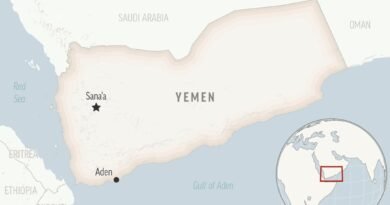Freeland Explains Absence from Trump Meeting: Suggests Asking Trudeau
Deputy Prime Minister Chrystia Freeland stated that although the prime minister has the explanation as to why she did not attend the meeting with U.S. President-elect Donald Trump in Florida, she supports the decision regardless.
Prime Minister Justin Trudeau took Public Safety Minister Dominic LeBlanc on the unexpected trip to Trump’s Mar-a-Lago residence on Nov. 29, accompanied by Canada’s ambassador to the U.S. and his top political aides.
When questioned by reporters on Dec. 3 about her absence from the meeting, Freeland responded, “Well, that’s a question primarily for the prime minister.”
Although Freeland deferred inquiries about her absence to Trudeau, she also affirmed that “it was the right choice.”
“The meeting primarily focused on the border,” she explained. “That was evident from the discussions between the prime minister and the president beforehand, as well as the president’s tweet, and Minister LeBlanc is responsible for border matters.”
Freeland provided an update on Canada-U.S. relations during a press briefing on Dec. 3, without mentioning Trudeau’s meeting with Trump. She discussed the Canada-U.S. cabinet committee meeting for the fifth time and the recent first ministers’ gathering to address the tariff threat. Additionally, she noted that Trudeau had briefed opposition party leaders on border issues earlier that day.
“It is crucial for us to remain strong, strategic, and unified, and to avoid negotiating against ourselves. I am confident that we can achieve this,” Freeland expressed.
Trump Meeting
The meeting table where Trudeau and LeBlanc were seated at the Mar-a-Lago dinner included Trump’s cabinet selections overseeing national security and tariff matters. Howard Lutnick (commerce), Mike Waltz (national security adviser), and Doug Burgum (interior) joined Trump at the table.
The meeting occurred after Trump announced on Nov. 25 that he would impose 25% tariffs on Canada and Mexico if they did not address illegal immigration and drug smuggling at the border. On the same day, Trudeau phoned Trump and requested an in-person meeting, as per Canada’s ambassador to the U.S., Kirsten Hillman.
Post-dinner, Trump described his meeting with Trudeau as “very productive,” discussing topics such as illegal immigration, trade, energy, the Arctic, and the drug crisis.
“Incoming secretary Lutnick messaged me the next day, expressing interest in meeting again in the coming weeks to further discuss border matters,” LeBlanc shared with CBC News on Dec. 1. “This is quite valuable, I believe, in helping them understand our shared priorities with their administration.”
Procurement Minister Jean-Yves Duclos disclosed that purchases of new equipment, like aerial surveillance platforms, are being expedited, utilizing special authorities related to a “national emergency” for swift acquisitions.
If Canada’s response fails to satisfy Trump and he imposes tariffs, the economy could be severely impacted. Canadian officials have emphasized that this action would also harm the U.S. economy due to its dependence on Canadian energy imports and interconnected supply chains.
The Associated Press contributed to this report.





